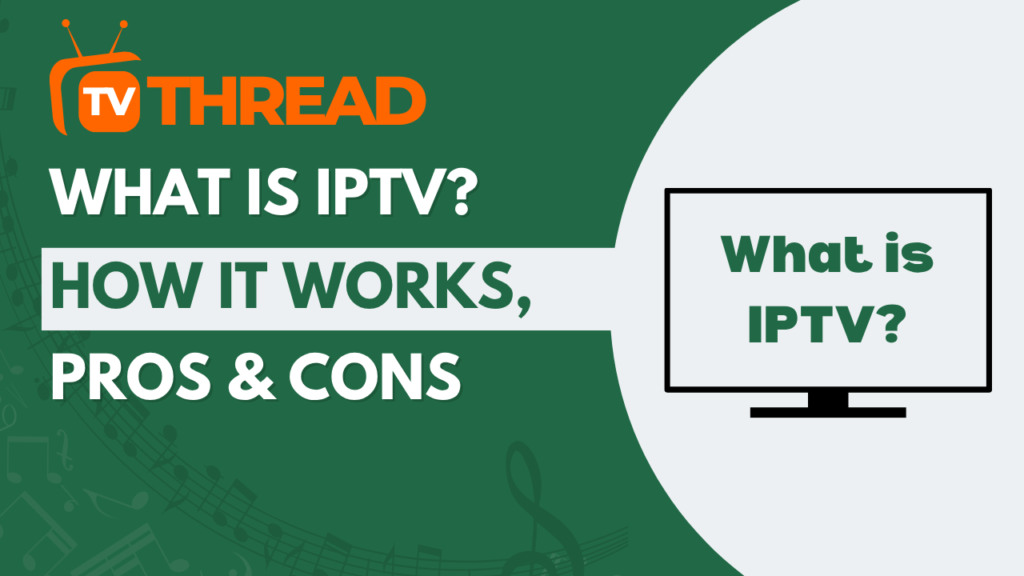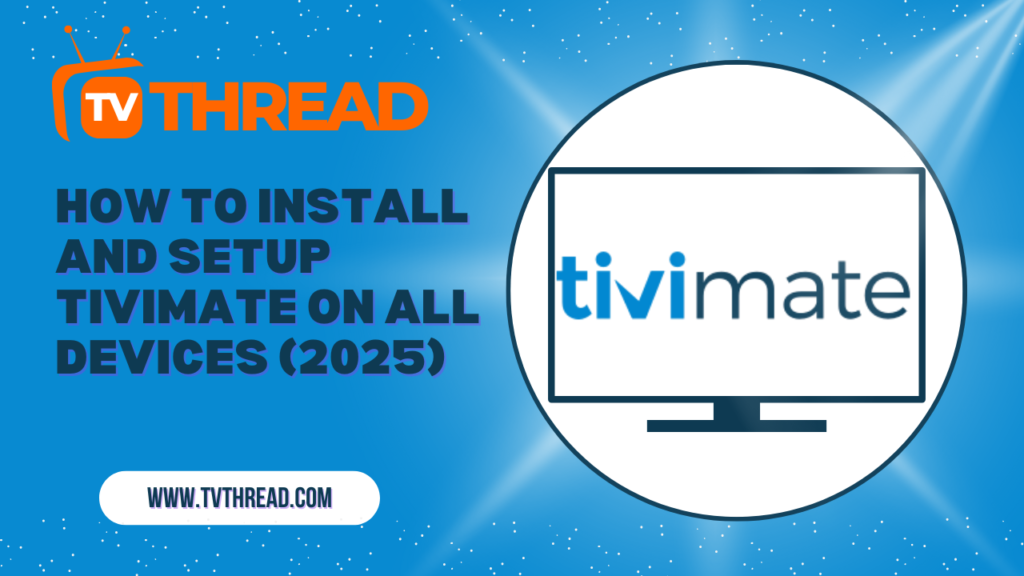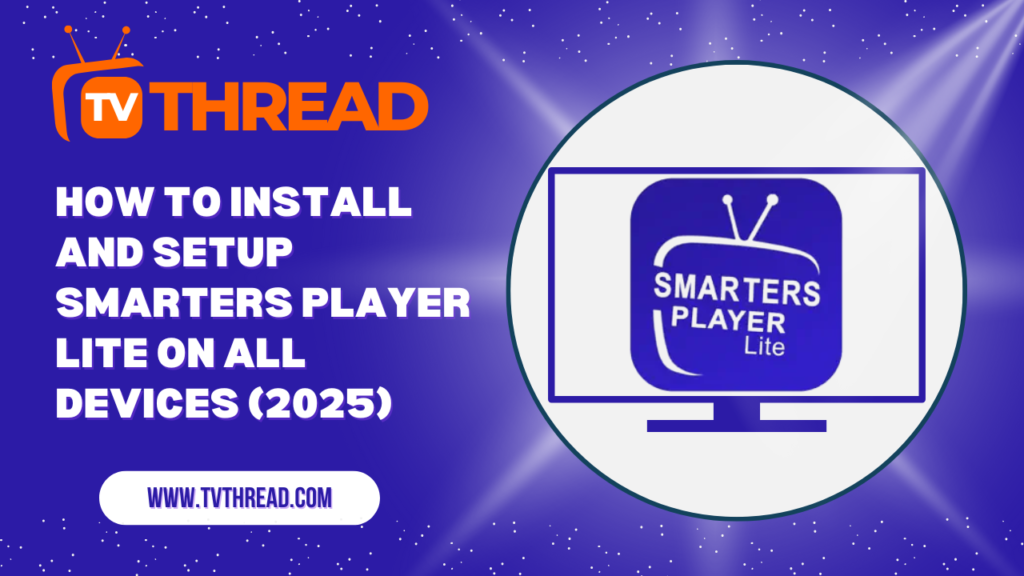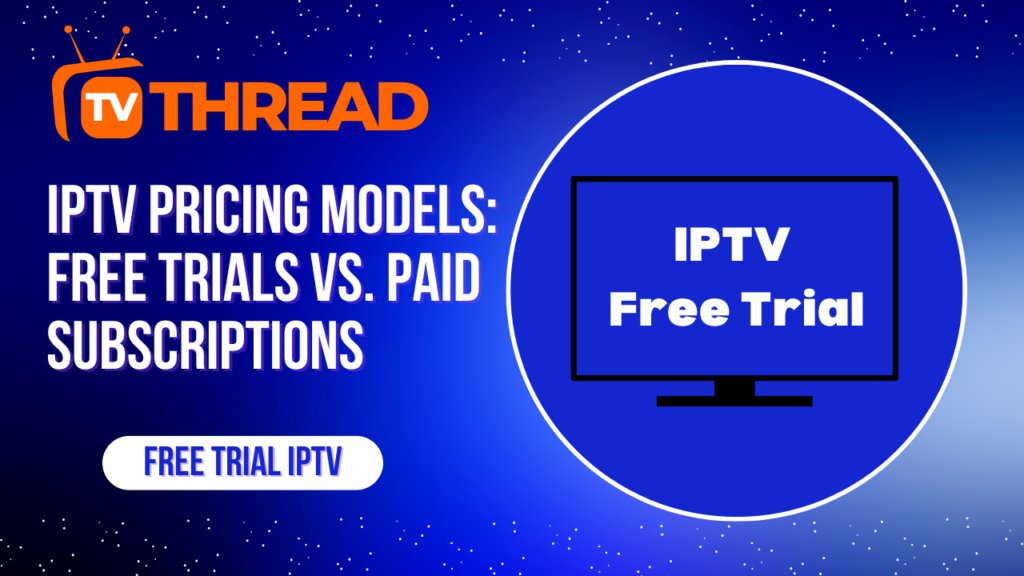Imagine watching your favorite shows, movies, and TV series on any device with internet. This is thanks to a new technology that’s changing how we watch media called IPTV, so What is IPTV?

Internet Protocol Television mixes live TV with on-demand content. It works on many devices. This means you can watch what you like, whenever you want.
But is IPTV right for you? Knowing its good and bad points is key to making a smart choice.
Key Takeaways
- IPTV offers a flexible viewing experience with live TV and on-demand content.
- It can be accessed on various devices with an internet connection.
- The service provides a personalized viewing experience.
- Understanding its pros and cons is essential for making an informed decision.
- It differs significantly from traditional TV viewing.
Understanding IPTV Service
IPTV, or Internet Protocol Television, is changing how we watch TV. It streams TV content over the internet, not through old-school broadcast methods. You need a stable internet connection and special software to watch IPTV channels.
Definition and Basic Concept
IPTV means Internet Protocol Television. It lets users stream TV shows online. This service gives a flexible and personal viewing experience, with lots of channels and on-demand content.
IPTV uses the internet to send TV shows. It’s not like traditional TV, which uses broadcast signals. IPTV services usually cost money, offering different packages with live TV, movies, and more.
How IPTV Differs from Traditional TV
IPTV is different from traditional TV in how it delivers and lets you watch content. Traditional TV uses broadcast signals, while IPTV uses the internet. This makes IPTV more flexible, like watching shows on-demand and getting more channels.
IPTV also lets you interact more with TV. You can pause, rewind, or fast-forward live TV. Plus, you can watch catch-up TV and video on demand.
| Feature | IPTV | Traditional TV |
|---|---|---|
| Content Delivery | Internet-based | Broadcast, Cable, or Satellite |
| Flexibility | High (on-demand content) | Limited |
| Interactivity | High (pause, rewind, fast-forward) | Limited |
The Evolution of Television Technology
The arrival of internet protocol television (IPTV) has changed the TV industry a lot. It has made watching TV more flexible and customizable for us.
From Broadcast to Internet Protocol
Before, TV used broadcast signals sent through the air or satellites. But now, with faster internet, IPTV lets us stream live TV channels and on-demand content online.
The Rise of Streaming Services
Streaming services have grown a lot, helping IPTV become popular. They let us watch movies, TV shows, and live events whenever we want. This change is making old TV watching habits fade away.
More people now prefer on-demand content and live tv streaming over traditional TV. This move towards IPTV and streaming is because we want TV that fits our lives better. As internet gets faster, IPTV will likely become even more popular, changing TV forever.
How IPTV Technology Works
IPTV technology changes how we watch TV by using the internet. It moves away from old TV ways to new streaming over the internet. This opens up new ways to get content.
Technical Infrastructure Behind IPTV
The tech behind IPTV is complex. It has many important parts. Encoding systems make content into smaller data. This data is sent through dedicated servers.
This setup is key for smooth content delivery. IPTV services need a strong internet to stream content to users.
The setup includes:
- Content delivery networks (CDNs)
- Edge servers for caching content closer to users
- Data centers for storing and processing content
Data Transmission Process
In IPTV, content is broken into packets and sent over the internet. Protocols like UDP and TCP help this process. They make sure data gets to the user’s device right.
Required Hardware and Software
To use IPTV, you need certain gear and software. You’ll need a set-top box or IPTV-compatible device, a good internet, and an IPTV subscription. The software lets the device play back the content.
Some key things you’ll need are:
- A compatible device like a smart TV or streaming box
- A fast and reliable internet
- An IPTV subscription
Types of IPTV Content
IPTV offers a wide range of content types. It caters to different viewer preferences. You can find everything from live TV to on-demand content. Check it out!
Live Television Broadcasts
Live TV broadcasts let you watch your favorite channels in real-time. It’s great for sports, news, and live shows. With live TV streaming, you can catch up on the latest without a fixed schedule.
Video on Demand (VOD)
Video on Demand services let you watch a huge library of content whenever you want. This includes movies, TV shows, and documentaries. Subscription television services with VOD let you pause, rewind, and fast-forward, making your viewing experience more personal.
Time-Shifted Media
Time-shifted media lets you watch content whenever it’s convenient for you. This includes catch-up TV and start-over services. It’s perfect for those with busy lives. IPTV services offer time-shifted media for viewers who value flexibility.
| Content Type | Description | Benefits |
|---|---|---|
| Live Television Broadcasts | Real-time TV channel streaming | Ideal for live events, news, and sports |
| Video on Demand (VOD) | Access to a library of content | Flexible viewing, pause, rewind, and fast-forward |
| Time-Shifted Media | Watch content at a convenient time | Catch-up TV, start-over services for busy schedules |

Comparing IPTV to Other Streaming Options
IPTV is often compared to OTT services and traditional TV. The TV world is changing fast. It’s important to know the differences and similarities between these options.
IPTV vs. OTT Services
IPTV and OTT services both stream content over the internet. But they work in different ways. IPTV needs a subscription and offers a TV-like experience with live TV and scheduled shows. OTT services, like Netflix and Hulu, focus on on-demand content and offer more flexibility.
Key differences: IPTV includes live TV, while OTT focuses on on-demand content.
IPTV vs. Cable and Satellite TV
IPTV uses the internet to deliver content, unlike cable and satellite TV. This makes IPTV more flexible and potentially cheaper. But, it relies on a stable internet connection, which can be a problem for some users.
| Feature | IPTV | Cable/Satellite TV |
|---|---|---|
| Content Delivery | Internet Protocol | Cable/Satellite Signal |
| Flexibility | High | Low |
| Cost | Variable | Generally Higher |
Hybrid Solutions
Some providers offer hybrid solutions that mix IPTV with traditional TV or OTT services. These aim to combine the best of each technology. For example, a service might offer live TV via IPTV and on-demand content from an OTT platform.
Hybrid models are becoming increasingly popular as they offer consumers the best of both worlds.
Popular IPTV Service Providers in the US
In the US, there are many IPTV service providers to pick from like TV Thread. They cater to different viewing needs. You can find everything from big companies to those that specialize in certain types of content.
Legal IPTV Options
Legal IPTV services in the US are quite popular. They offer a wide range of content. This includes live TV, movies, and on-demand shows.
Major Providers Overview
Big names in IPTV in the US have grown to include internet TV. They have big libraries of content and easy-to-use interfaces. For example, some offer comprehensive channel lineups for all kinds of viewers.
Pricing Structures
IPTV prices vary a lot. Some providers have flexible subscription plans for families or individuals. The cost depends on the content and how many devices can stream at once.
Specialized Content Providers
There are also providers that focus on specific content. They cater to fans of sports, international shows, or unique entertainment.
These specialized services offer unique content offerings not found elsewhere. They’re great for viewers looking for something specific.
Setting Up Your IPTV System
To enjoy IPTV, you need the right equipment and internet. This is a simple process that prepares you for online TV and live TV streaming using player like hotplayer, iboplayer, bobplayer, sparkle, or smartone..
Internet Requirements
A fast and stable internet is key for IPTV. For SD content, 5 Mbps is the minimum. HD content needs at least 10 Mbps. For live TV streaming, a quicker connection prevents buffering.
Compatible Devices
IPTV works on many devices like smart TVs and smartphones. Choose a device that fits your IPTV service and viewing quality. Some services have apps for different devices, making it easy to watch online TV on your favorite screen.
Installation Process
The setup involves downloading and installing the IPTV app. Then, you configure it with your service provider’s details. Most services offer guides to help. After installation, you can enjoy your favorite TV shows and live TV streaming easily.
Advantages of IPTV Services
IPTV services bring many benefits, making watching TV more personal and flexible. They meet the needs of today’s viewers in many ways.
Content Flexibility and Customization
IPTV lets you watch your favorite shows and movies whenever you want. This is different from traditional TV, where you have to watch what’s on at a set time.
You can pick from various channels and content packages that match your interests. This way, you get to choose what you watch.
Multi-device Accessibility
IPTV services let you watch your favorite content on many devices. This includes smartphones, tablets, smart TVs, and computers. You can enjoy IPTV anywhere, as long as you have internet.

Cost-effectiveness Compared to Cable
IPTV is often cheaper than cable TV. You can pick a subscription that fits your budget. This means you only pay for what you watch, saving you money.
Interactive Features
IPTV services have cool interactive features. These include electronic program guides (EPGs), pause and rewind live TV, and recording shows for later. These features make watching TV more fun and easy.
Some IPTV providers even offer personalized recommendations based on what you’ve watched before. This makes your viewing experience even better.
In short, IPTV is a great alternative to traditional TV. It offers flexibility, accessibility, cost savings, and interactive features. As a streaming service, IPTV is becoming more popular for its personalized and convenient viewing experience.
Potential Drawbacks and Limitations
IPTV has many benefits, but it also has some downsides. One big issue is its need for a steady internet connection.
Internet Dependency Issues
IPTV works best with a fast and stable internet. If your internet is slow or goes down, your IPTV stream will suffer. It’s important to have a reliable internet service provider to keep your stream smooth.
- Make sure your internet plan is good for streaming.
- Use a wired connection for better stability.
- Check your internet speed often.
Quality and Buffering Concerns
Many users face problems with IPTV quality and buffering. These issues can be caused by server overload, bad internet, or old hardware. To fix these, try lowering the stream quality or getting better hardware.
- Lower the streaming quality to cut down on buffering.
- Get a new router for better performance.
- Use a high-performance IPTV device.
Troubleshooting Common IPTV Problems
Users often deal with freezing screens, poor video, and app crashes. To solve these, check your internet, restart your IPTV device, or update the app. If problems persist, reach out to your IPTV provider’s customer support.
Tips for Troubleshooting:
- Restart your IPTV device and router.
- Check for app updates.
- Contact your IPTV provider for help.
Conclusion
IPTV service has changed how we watch TV, making it more flexible and interactive. It offers a wide range of content, like live TV, video on demand, and time-shifted media. This makes IPTV a favorite among many viewers.
As a streaming service, IPTV is a new way to watch TV, different from traditional cable. It lets you watch on many devices, making your viewing experience better.
However, IPTV has some downsides, like needing a good internet connection and sometimes poor quality. But, its benefits, like being customizable, make it appealing to many.
As TV technology keeps changing, IPTV will likely be a big part of the future of entertainment and media.
FAQ
What is IPTV and how does it work?
IPTV, or Internet Protocol Television, streams TV content over the internet. It sends TV channels and on-demand content through broadband. This lets users watch a wide range of shows on different devices.
How does IPTV differ from traditional TV?
IPTV uses the internet to deliver content, unlike traditional TV which uses broadcast signals. IPTV gives users more control and flexibility. They can watch content on-demand and on various devices.
What are the benefits of using an IPTV service?
IPTV offers flexibility and customization, making it easy to access content on different devices. It’s also more affordable than traditional cable TV. Plus, users can pause, rewind, and record live TV.
What are the potential drawbacks of IPTV services?
IPTV can be affected by internet issues like quality and buffering. A stable, fast internet connection is crucial. Users might also face problems with content availability and device compatibility.
What are the internet requirements for IPTV?
IPTV needs a good internet connection. For standard definition (SD) content, 5 Mbps is recommended. High definition (HD) content requires at least 10 Mbps.
What devices are compatible with IPTV services?
IPTV works on many devices. This includes smart TVs, streaming devices like Roku and Amazon Fire TV, and smartphones. Tablets, computers, gaming consoles, and other internet-connected devices are also compatible.
How do I set up an IPTV system?
To set up IPTV, subscribe to a service provider and ensure a stable internet connection. Install the necessary software or app on your device. The process involves downloading the app, setting it up, and activating the service.
Can I watch live TV on IPTV?
Yes, IPTV services often include live TV broadcasts. Users can watch their favorite channels in real-time. IPTV also offers catch-up TV and on-demand content for more flexibility.
What is the difference between IPTV and OTT services?
IPTV and OTT services both stream content over the internet. IPTV usually requires a subscription and offers live TV and more channels. OTT services are often on-demand and may not need a subscription.
Are IPTV services legal?
IPTV services can be legal or illegal, depending on the provider and content. Users should choose a reputable, licensed IPTV service to avoid copyright issues.
Contact us if you have any question! or you can check our FAQ page!



